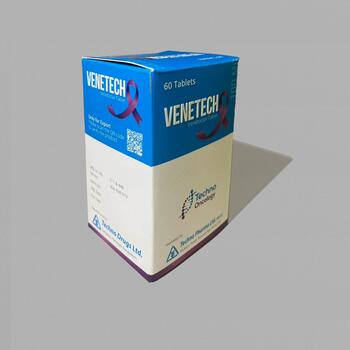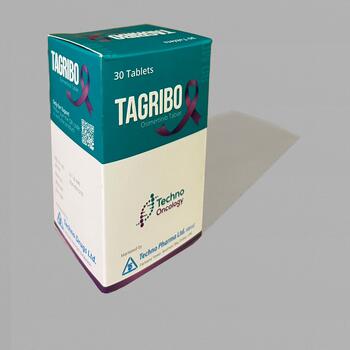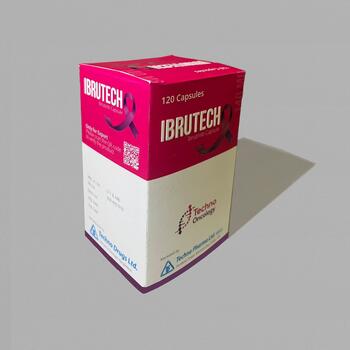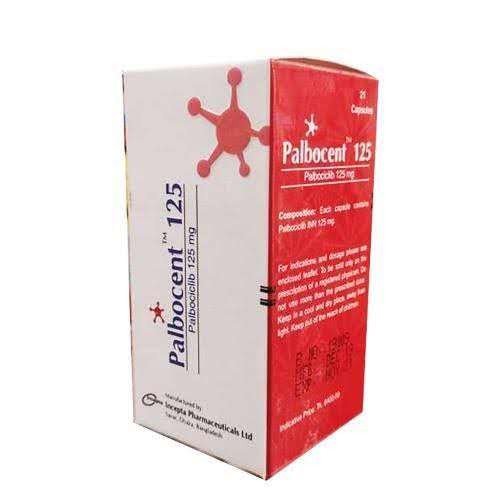阿达格拉西布 (Adagrasib) 200mg

1. Composition:
The active ingredient of Adagrasib is Adagrasib. Its chemical name is N-{[(1S)-1-(4-bromo-2-chlorophenyl)-2,2,2-trifluoroethyl]amino}-2,2-difluoro-N-methyl-2-[4-(methylsulfonyl)phenyl]acetamide**, with a molecular formula of C26H23BrClF5N2O3S and a molecular weight of 625.89 g/mol.
2. Pharmacological Effects:
Adagrasib is primarily used to treat tumors with KRAS G12C mutations, particularly non-small cell lung cancer (NSCLC) and certain colorectal cancers (CRC). **KRAS G12C** is an activating mutation that causes the RAS protein to remain continuously active, driving the growth of cancer cells. Adagrasib specifically targets and inhibits the mutated KRAS G12C protein, blocking signaling pathways, reducing cancer cell proliferation, and inducing apoptosis.
3. Usage Instructions:
Adagrasib is typically administered in oral tablet form, with a common dosage of **200mg** taken twice daily, and patients should follow their doctor's specific instructions. It can be taken with food or on an empty stomach. Dosage adjustments should be made based on the patient’s tolerance and side effects.
4. Research and Development History:
Adagrasib was developed by Mirati Therapeutics, specifically targeting KRAS G12C mutations. This mutation was previously considered "untargetable" as a cancer driver due to its structural characteristics that prevented effective binding by traditional targeted therapies. However, advances in structural biology and chemistry enabled Mirati Therapeutics to develop Adagrasib, a drug capable of specifically recognizing and binding to the mutation site of KRAS G12C, effectively inhibiting cancer cell growth.
Adagrasib has shown significant efficacy against tumors with KRAS G12C mutations in multiple clinical trials, particularly demonstrating a good response in patients with non-small cell lung cancer (NSCLC). In 2022, the U.S. FDA granted Adagrasib Fast Track designation for the treatment of KRAS G12C mutated non-small cell lung cancer.
5. Mechanism of Action:
The mechanism of action of Adagrasib is based on its specific inhibition of the **KRAS G12C** mutant protein. KRAS is a GTPase that regulates cell proliferation and survival signals in normal cells, but the G12C mutation causes KRAS to remain in an active state, driving tumor cell growth.
Adagrasib binds to the active site of the KRAS G12C mutant protein, preventing it from binding to GTP, thereby locking the KRAS protein in an inactive state. This process disrupts the signaling pathways that promote cancer cell proliferation, resulting in halted cancer cell growth and triggering apoptosis.
Adagrasib has a long half-life, allowing it to maintain a high concentration in the body, which enables continuous suppression of the KRAS G12C mutant protein and significantly reduces the risk of cancer progression.
6. Summary:
Adagrasib is an innovative small-molecule targeted therapy specifically designed for patients with KRAS G12C mutations. It inhibits the mutated KRAS protein, preventing cancer cell growth and is especially suitable for patients with non-small cell lung cancer and other solid tumors with KRAS G12C mutations. Clinical trials have shown that Adagrasib exhibits good efficacy and tolerability in these patients.







